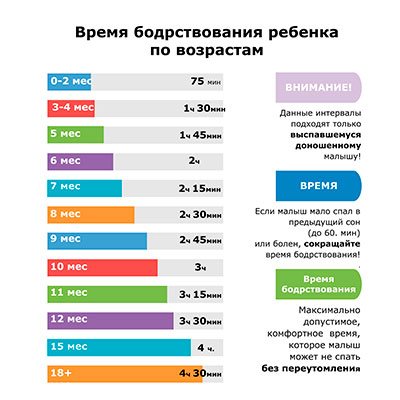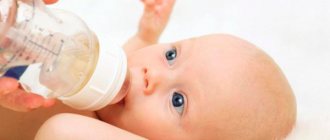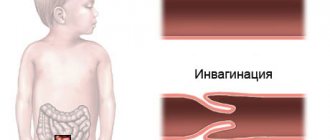Just a minute ago the baby was sleeping peacefully in the crib. But suddenly he began to cry, pulling his legs to his tummy, and this cry did not stop for several hours. This is how colic manifests itself in a newborn - a common and very alarming condition for a baby for parents.
Why do they arise? Is it possible to prevent their occurrence? And most importantly, how to help the baby and ease his suffering? Alexander Ushakov , a pediatrician at the MEDSI Children's Clinic on Pirogovskaya, answers the questions .
Causes of colic in infants
“There is no one, one hundred percent proven and known to doctors cause of intestinal colic in infants,” comments pediatrician Alexander Ushakov. “Various factors can lead to their occurrence.”
There are several main ones:
- swallowing air while eating;
- feeding the child too large portions of formula;
- feeding with an inappropriate formula;
- a mother’s diet containing foods that cause an allergic reaction or digestive disorders in the child.
These factors lead to the formation and excessive accumulation of gases in the baby’s intestines. They form large blisters that stretch the intestinal walls and cause discomfort in the abdomen, and often severe pain. In response to them, the child chokes on crying.
“With artificial feeding, the risk of developing intestinal colic in a child increases,” says Alexander Ushakov. — Breast milk contains special enzymes that reduce the risk of allergic reactions in the baby and digestive disorders. Artificial mixtures do not contain these enzymes. In addition, when feeding through a bottle, the baby swallows more excess air than when breastfeeding. This also increases the risk of colic.”
But it is wrong to consider artificial feeding the main cause of the problem. It often occurs in infants. The formation of excess gases can be caused by the mother's diet, which provokes food allergies in the baby, or by the natural colonization of the child's intestines by microorganisms that live on the skin of the mother's breast.
Medicines for bloating in newborns
Bloating is one of the most common problems a new mother faces in the first months of her baby's life. Therefore, there are many remedies that help alleviate the child’s condition:
- Espumisan. This medicine in the form of suspensions and drops is one of the most popular and effective drugs for the treatment of bloating in newborns. Espumisan removes excess mucus and gases from the intestines, without having any effect on other organs and systems of the baby. The active ingredient of the drug is simethicone. It is not absorbed into the stomach and intestines, but only binds gases and removes them naturally. For newborns, 1 ml of the product is enough. It can be given to the baby for feeding (in case of breastfeeding) or added to a bottle with artificial formula.
- Baby Calm. Drops of this product contain exclusively plant enzymes, which have been used in the treatment of bloating for many years. Fennel oil helps the baby's intestines get rid of excess gases and reduces the number of microorganisms that provoke their appearance. Peppermint oil helps the baby calm down, and anise oil eliminates bloating itself and restores normal intestinal function. Baby Calm is a product that was created specifically for the treatment of bloating in children under one year of age. For a positive effect, it is enough to use 10 drops of the product before each meal.
- Bifiform Baby. In some cases, bloating in newborns is associated with an insufficient amount of flora necessary for the digestive process. Bifiform Baby cannot be called a complete medicine; most likely, it is a dietary supplement that helps restore the normal microflora of the baby’s gastrointestinal tract. Since drugs of this type are not medicine, they can be used from the first days of life. Bifiform Baby can be used not only by a child, but also by a mother who experiences intestinal dysfunction after childbirth.
- Linux. In addition to suspensions and drops, you can use powders and capsules. One such tool is Linux. This medicine is quite well known and is available in almost every pharmacy. The capsules contain a large number of lactic acid bacteria, which help cope with the removal of gases and quickly digest dairy foods. The drug can only be used with formula containing artificial or breast milk.
Colic in a newborn - symptoms
Baby crying accompanies any discomfort that the baby experiences. The baby simply cannot tell his parents in a different way about what is bothering him. But colic and gas in newborns can be recognized by characteristic signs.
Anxiety . The baby cannot lie quietly in the crib and shows signs of anxiety even in his arms. For healthy babies who feel well and enjoy contact with their parents, this behavior is not typical.
A shrill cry . The baby cries loudly and loudly, and looking at him, the mother understands that the baby is in pain. The crying is not monotonous, it is interrupted, then becomes louder and can last up to several hours.
Pulling the legs towards the stomach . This is one of the main signs that allows you to understand that a newborn has colic. The child experiences pain in the intestinal area and instinctively tries to tighten his legs to reduce pain. This is easy to notice when the baby is lying in the crib. The same thing happens in the arms of parents.
Release of gases . The baby seems to be straining his tummy, and gas can be heard coming out from time to time. This helps the baby and reduces the pain of a colic attack, but after a while the pain may occur again.
Pale skin . During an attack of colic and painful intestinal spasms, the baby's face and arms may look paler than usual.
Changing the type of stool . With severe digestive disorders, which are always accompanied by intestinal colic, the child’s stool may acquire a greenish tint. Lumps of mucus may appear in it, and the frequency of the urge to go big increases.
All symptoms or only some of them may be observed at the same time. With severe attacks of colic, the baby experiences serious discomfort, so it cries, raises its legs, looks pale, and its tummy feels tight and tense to the touch.

When does colic begin and go away in a newborn baby?
Most often, parents encounter an attack of intestinal colic in the first month of the baby’s life. This occurs in the second or third week and lasts up to six weeks. Some babies may experience pain for longer, up to four to six months, but this is the exception rather than the norm.
The duration and severity of attacks is always individual, and it is impossible to predict how long colic lasts in newborns. Sometimes the pain goes away quickly: the mother’s attentive attitude and help to the baby help calm the baby within a few minutes. But usually the painful sensations do not go away for up to three hours, occur immediately after feeding and can persist until the next feeding.
“If the baby is gaining weight and his general condition is good, then with a high degree of probability we can say that everything is fine with him,” notes pediatrician Alexander Ushakov. — Parents should pay attention to the nature of crying. Intestinal colic is characterized by multi-tonal, intermittent crying. If the crying is monotonous and continues for several hours, this may indicate problems in the baby’s body, for example, increased intracranial pressure.”
Colic in a newborn - what to do
Parents can help their child get rid of painful sensations. The best remedy for colic in newborns is affection and warmth. Try to calm the baby down, take him in your arms, and place his bare tummy against your stomach. Skin-to-skin contact relaxes the baby, reduces the severity of intestinal spasms, and helps reduce pain.

A warm diaper placed on the tummy will also help, but it is important to make sure that it is warm and not hot. A cloth that is too hot can burn your delicate skin and only make the pain worse.
“Make a gentle tummy massage,” advises pediatrician Alexander Ushakov. “Lightly stroke the tummy clockwise, this will ease the baby’s suffering.”
If colic appears too often and disrupts the baby’s condition and sleep, you should consult a doctor. Your pediatrician may recommend drug therapy.
— Means to reduce gas formation. Such drugs “break” large gas bubbles in the intestines into small ones, which facilitates their release naturally. In addition, when the volume of bubbles decreases, the pressure on the intestinal walls decreases, bloating disappears, and the pain goes away.
— Preparations with probiotics. They change the composition of the intestinal microflora and suppress pathogenic microorganisms that can cause bloating and discomfort. Thanks to this, the frequency and severity of infant colic are reduced.
The doctor should prescribe medications taking into account the age and weight of the child. An incorrectly selected dosage will not bring relief to either the child or the parents. And independent selection of medications for children in the first year of life is unacceptable due to the high risk of adverse reactions.
“In extreme cases, when the volume of gas is very large and other means do not help, you can use a gas outlet tube,” clarifies Alexander Ushakov. “But before using it, carefully read the instructions so as not to harm your baby.”
How to get rid of colic in a newborn
Proper care helps reduce the risk of infant colic. These methods will help breastfed and bottle-fed babies.
Place the baby on your tummy. Do this before each feeding and leave for 10 minutes. This simple exercise improves intestinal motility and strengthens the anterior abdominal wall.

Hold in your arms after eating . Do not rush to put your baby in the crib after feeding, even if he has fallen asleep. Hold it vertically, gently press it to yourself, and place the head on your shoulder. Walk around the room for a few minutes with the baby in your arms. During this time, the excess air that the baby swallowed during feeding will be released, and gases will not accumulate in the intestines.
Do gymnastics . During the day, stroke the baby, do a light massage of the back and tummy, and perform acupressure around the navel. Stroking massage movements relax the digestive system, eliminate colic, and are very pleasant for the baby and mother.
“Dill water, beloved by many, does not help in the treatment of colic in newborns,” comments pediatrician Alexander Ushakov. “It differs from breast milk and artificial formula in its physical and chemical properties and may not only not relieve pain, but even intensify and provoke new attacks of colic.”
Remedies for colic and gas from iHerb (Ayherb)
Polina is already three months old and the period of active gas-colic is ending, so I am writing the promised review about all the products from iHerb that I purchased in case of nuclear war
Fortunately, we managed to avoid colic; there were only episodes of gas, which were mainly manifested by restlessness, kicking of the legs during feeding, throwing of the breast, and interrupted sleep. She came to the point of crying, which could not be calmed by anything, only three times, and in these situations simethicone helped a lot, Polina immediately calmed down and fell asleep.
Simethicone is the main component of such well-known products as Espumisan, Bobotik, Sab Simplex and others. I had it with iHerb - Gas Relief Mommy's Bliss
Simethicone is the optimal remedy for the problem of accumulated gases; it impedes the formation and promotes the destruction of gas bubbles in the nutrient suspension and mucus of the gastrointestinal tract.
Gases torment many newborns and this is due to the imperfection of the digestive system. In addition to medications (simethicone), the following also help:
- tummy massage, bending the legs towards the stomach;
- carrying on hands (in the “tiger on a branch” pose);
- tactile contact, sling, co-sleeping;
- laying on the tummy before each feeding;
- warm heating pad on the stomach;
- motion sickness, white noise (sound of hair dryer, hissing)
Colic is a different story, and is actually much less common. Very often, colic is mistaken for a banal over-exertion; the newborn’s nervous system cannot withstand long periods of wakefulness (more than an hour to an hour and a half) and the child begins to cry a lot and has difficulty calming down.

True infant colic is experienced by ~20% of children and is manifested by intense crying lasting about three hours or more than three times a week and for at least three weeks. One-time episodes of short-term crying, even very strong ones, are not colic.
Colic is also associated with imperfections of the nervous system. The exact causes of this phenomenon are still unknown and there is no effective treatment. It's just a period that needs to be lived through. Colic ends naturally after 3-4 months
A new promising direction in the treatment of colic are probiotics, namely the bacteria Lactobacillus reuteri
Numerous studies in recent decades have shown a significant beneficial effect of Lactobacillus reuteri DSM 17938 on the course of infant colic:
- https://www.rmj.ru/articles/pediatriya/Mladencheskie_koliki_ot_pathogeneza_klecheniyu/
- https://www.ncbi.nlm.nih.gov/pubmed/26940647
- https://www.ncbi.nlm.nih.gov/pubmed/28969890
| There are anti-colic bacteria on iHerb BioGaia, ProTectis, Baby, Digestive Health, Probiotic Supplement, 0.17 fl. oz. (5 ml) I still have this box in the refrigerator, unopened. |
| Another well-known remedy for colic is dill water (ginger and fennel). In the saved stories of my Instagram there are your reviews about dill water from iHerb - Mommy's Bliss, Dill water, original, 120 ml. It helps some, it doesn’t help others... so you can only determine whether this colic remedy is suitable for your child by trial and error. Fennel has been proven to help with intestinal cramps. And if in your case dill water did not give the desired effect, then most likely the reason for the baby’s crying was completely different... |
| Another supplement for newborns is Jarro-Dophilus Infant probiotics Jarrow Formulas, Jarro-Dophilus Infant, Probiotic Drops, 0.51 fl oz. (15 ml) This is not a cure for gas and colic! These probiotics are intended only for infants from 0 to 6 months who are breastfed. Bacteria Bifidobacterium longum subsp. infantis (B. infantis) are naturally found in the gastrointestinal tract of infants and are essential for the digestion and absorption of breast milk. The intestinal microflora of breastfed newborns is 90% represented by B. infantis bacteria. If they are deficient, problems with stool may occur. |
| Since I had antibiotics after the CS, I gave her these bacteria for the first week of the child’s life in order to maintain a normal balance of microflora. I myself took PRO-moms Hyperbiotics. And we returned to these bacteria again in the third month to establish regular bowel movements. |









